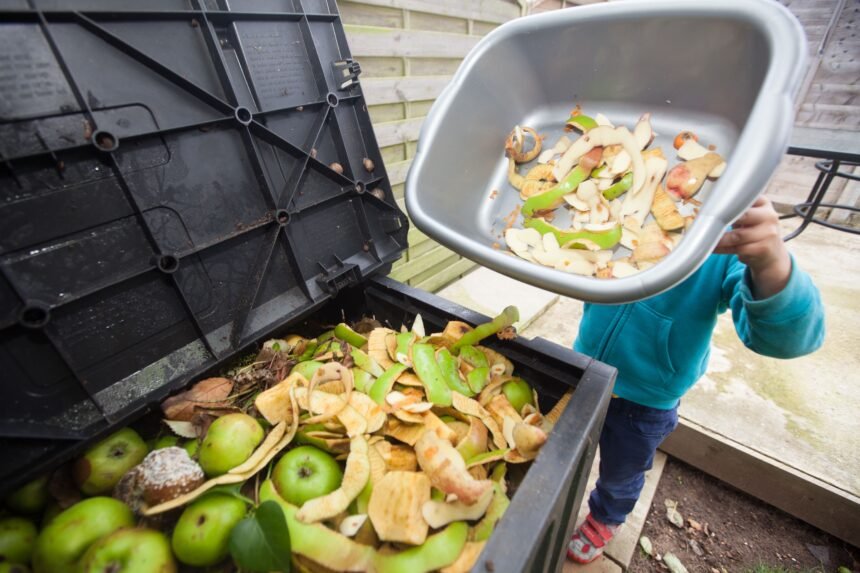Food waste is a problem that’s quietly growing in our houses and places of work. It’s like an unseen thief, slowly nibbling away at our sources, money, and even our planet. But right here’s the component, it doesn’t need to be this way. With a little bit of planning, creativity, and mindfulness, you can tackle food waste head-on, whether or not you’re for your relaxed kitchen or in the bustling workplace.When you’re looking to repurpose food waste from your home or workplace, skip hire orrell wigan offers an efficient solution for managing and disposing of excess materials responsibly. Let’s discuss some of the easiest methods to reduce food at home and workspace:
Avoid Buying Too Much:
When you purchase most effectively what you want, you’re now not just saving meals from the bin, you’re saving cash and lowering the environmental impact of your grocery haul. Less virtually can be greater, in particular on the subject of retaining your kitchen muddle-loose and your judgment of right and wrong cleanliness.
Plan Your Meals to Reduce Food Waste:
Meal planning isn’t only for the excellent-organized or fitness-aware, it’s for everybody who desires to devour well and waste much less. By making plans for your meals for the week, you’re setting yourself up for success. You’ll recognize precisely what you want and what sort of it, this means that fewer spontaneous purchases and less wasted meals.
Start by mapping out your meals and creating a buying list based totally on that plan. Consider portion sizes, how many humans you’re cooking for, and any leftovers you may repurpose later. Not handiest does this technique assist in reducing food waste, but it additionally takes the stress out of each day’s meal prep. Plus, there’s a sure pleasure in understanding you’ve got a plan and also you’re sticking to it, like a culinary superhero geared up to save the day (and the planet)!
Know How to Store Your Food:
Storing food properly is a sport-changer when it comes to decreasing waste. How frequently have you ever reached for a bit of fruit most effective to discover it spoiled, or opened a bag of veggies that’s wilted past popularity? Learning the bits and bobs of meals storage could make a world of difference.
Different foods have specific desires. Some thrive inside the refrigerator, while others opt for the pantry. Potatoes and onions, as an instance, must be saved in a fab, darkish region, even as berries and leafy vegetables need the bloodless confines of your fridge. And don’t forget about approximately hermetic packing containers, they’re your high-quality buddy in relation to maintaining matters clean.
Avoid Serving Too Much:
Serve smaller quantities and encourage seconds if needed. This manner, you’re handiest at dispensing what you could realistically eat, and in case you’re nevertheless hungry, you can continually move back for more. Not only does this method reduce food waste, but it also lets you enjoy your meals, bite via chew, without the guilt of leaving 1/2 a plate at the back of.
Freeze Extras:
Label your frozen items with the date and what’s internal, because allow’s be sincere, mystery food aren’t constantly a laugh. By freezing your extras, you’re essentially hitting the pause button on meals waste. You’ll have something tasty expecting you whilst you want it most, and you need to fear about tossing food that didn’t get eaten in time.
Know Your Moulds:
Hard cheeses, for instance, can frequently be saved through slicing away the mouldy component. The identical is going for organization end result and veggies. However, mouldy bread, gentle culmination, or whatever with an excessive moisture content ought to be discarded, as the mildew can penetrate deeper than what’s visible.
Repurpose Waste Where Possible:
Sometimes, waste is inevitable, however that doesn’t suggest it has to go straight to the landfill. Get innovative and think about how you may repurpose food scraps. Vegetable peels may become broth, stale bread into breadcrumbs or croutons, and overripe culmination into smoothies or baked goods.
Composting is some other awesome choice. If you’ve got a lawn, composting your meals waste can enrich your soil and provide you with lush, vibrant flora. It’s a lovely cycle, what might have been waste is transformed into something new and useful.
Conclusion:
Be mindful of portion control and serve only the necessary amount of food. Encourage donation of surplus food to local food banks or soup kitchens and promote composting to break down organic waste and create nutrient-rich soil for plants. Regularly check refrigerator and pantry inventory to use ingredients before they spoil, and consider purchasing less popular but equally nutritious and cost-effective foods. Educating yourself and others about the impact of food waste on the environment can further emphasize the importance of reducing waste. By implementing these measures, you will contribute to environmental sustainability and help save resources at home and in the workplace. Visit thesimplesource for more interesting articles. Also read: Why Composting Organic Waste Benefits the Environment?





